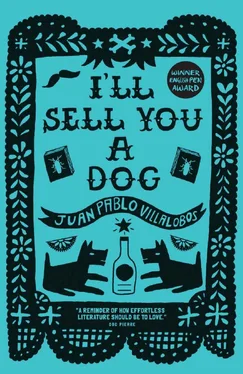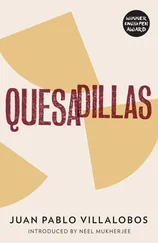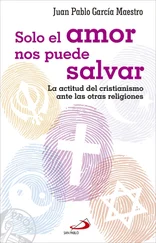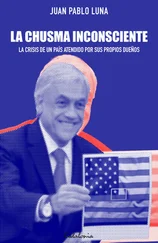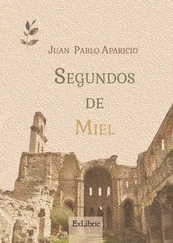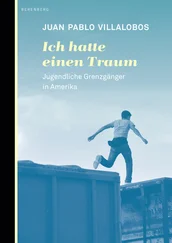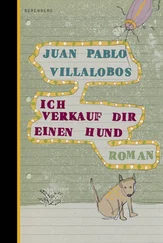In an attempt to understand everything that had happened, I wrote in my notebook: How can everything that’s happened be understood? What’s the meaning of it taking place? Was it a vindication of the forgotten, the disappeared, the damned, the marginal, the stray dogs? Was it a complicated way of saying art historians are revisionists? Was it a laboured joke that life played to rid itself of Hipólita? Or did Fate orchestrate it all to bring Willem and Dorotea together? What if they have a baby? What if the child ends up being the result of this whole story? Was it perhaps life that finds a way at any price? Or, worse, was there some sort of moral lesson that meant I’d have to give up drinking and channel my compulsions towards some other activity, such as writing a novel, for instance?
The need to understand everything, to try and sum it up like a lesson, gave me uneasy dreams. Towards dawn, at the end of a corridor in a large exhibition space, I recognised the unmistakeable silhouette of the Sorcerer. I walked over and saw the Sorcerer do the same, surrounded by the usual pack of melancholy mutts.
‘Now you really are ready to write my novel,’ he said.
‘Congratulations,’ I replied.
‘What for?’
‘For the exhibition.’
‘Do you think I’m interested in being recognised by posterity?’
‘You’re not?’
‘I’ve suffered more than Christ; nothing can remedy that.’
‘Nor can a novel.’
‘You’re right, but the novel you’re going to write is about me, not for me.’
‘So who’s it for, then?’
‘Who do you think? Look.’
And then he lifted up his shirt and, from down his trousers, where he had stuffed it, took a copy of Aesthetic Theory . He opened it up without hesitation at page 30, and ordered: ‘Read this.’
And I read a phrase that stood out in golden letters: The new is akin to death.
‘Am I going to die?’ I asked him.
‘Not yet,’ he replied. ‘First you’re going to write a novel. Now wake up.’
‘What?’
‘WAKE UP, DAMN IT!’
I woke in a cold sweat, with a stabbing pain in my liver, and got up to get a glass of water and find a pill that would calm me. As I crossed the darkness of the lounge I saw a little light burning. I felt for the light switch and the bulb illuminated Francesca, clad in a long robe of red silk and sitting in my little chair, using the Chinese reading light to read my notebook.
‘Give me the keys,’ I demanded.
She waved a heavy bunch.
‘My keys,’ I insisted.
‘I can’t,’ she replied. ‘It’s my responsibility, the responsibility of the chair of the management committee. Who do you think opens the door when someone here dies?’
‘Have you been coming into my apartment this whole time?’
She fell silent, conceding that this was indeed what she’d been doing.
‘But how is it possible I’ve only realised just now?’ I asked aloud, although it sounded more like an expression of surprise bouncing around in my own head.
‘You’re a deep sleeper. Perhaps if you didn’t drink so much…’
‘If I didn’t drink so much you wouldn’t sneak into my room to spy on my notebook?’
She stood up and put the notebook down where her soft, firm, long-yearned-for posterior had been.
‘Now you really are ready to write the novel,’ she said.
‘What?’
‘I said now you can start writing the novel.’
‘There’s something I don’t understand,’ I said.
‘What’s that?’
‘Why so insistent? What for, what do you get out of it?’
‘You don’t know? I work for literature.’
‘You’re kidding! Does it pay you a grant?’
‘Something like that.’
‘ Something like that? What does something like that mean? You can’t just come into my apartment and start playing guessing games!’
‘What I get out of it is a novel.’
‘You’re not going to tell me you’re a muse.’
She was silent again so as to confirm my suspicion and I raised my eyebrows just enough to demand an explanation.
‘What did you expect?’ she answered. ‘A nymph flitting about by a river? A translucent young girl with long blonde hair and blue eyes sitting in a café in Paris? A dark-skinned beauty with huge breasts suckling the children of the earth?’
‘For a muse you’re certainly pretty twisted.’
‘And don’t forget I’ve got that medical certificate; if you carry on acting up I’ll send you to the care home.’
‘I thought muses were meant to inspire, not blackmail.’
‘This is real life, not literature. And don’t act dumb, all you ever wanted to do was go to bed with me.’
‘Well?’
‘Well what?’
‘Is that going to happen?’
She put both hands to her waist, to the silk tie that served as a belt for the robe, and gently pulled at the knot, so gently that, instead of a no, the gesture had the vague air of a promise.
‘We’ll see,’ she replied. ‘First, write the novel. Write about us. Everything that happened to us. Write our story.’
I showed her the door with a matador’s flourish and watched her go, propelled by her customary smugness and leaving behind her a faint scent of lemons. So I was going to have to write a novel. Francesca didn’t know who she was dealing with. The next day I summoned Mao to an emergency meeting and, using the techniques he had learned for seizing public buildings, we installed a system for blocking the door to my apartment. That night I poured myself the last beer of the day, which turned out to be the third one before the second-to-last, and started to think about a novel whose author doesn’t want to write it, a novel about something no one is sure has happened, a novel about what hasn’t been experienced and, it goes without saying, a novel that would be like a plate of dog-meat tacos. I began flicking through the Aesthetic Theory at random, rereading the underlined passages, taking them as an inspiration, and then I opened my notebook, picked up my pen and started to write: In those days, as I left my apartment each morning, number 3-C, I would bump into my neighbour from 3-D in the hall, who had got it into her head that I was writing a novel. My neighbour was called Francesca, and I, it goes without saying, was not writing a novel at all.
Author’s Acknowledgements
To the members of the ICL, the Intimate Circle of Readers, whose evaluations significantly improved the manuscript of this novel: Andreia Moroni, Teresa García Díaz, Cristina Bartolomé, Rosalind Harvey, Iván Díaz Sancho, Javier Villa and Luis Alfonso Villalobos.
In some imprecise period of adolescence, in between sips of tequila, Óscar Serrano talked to me for the first time about his great uncle, Manuel González Serrano.
Patrick Charpenel was generous enough to give me a masterclass in twentieth-century Mexican art via Skype. Any inaccuracies there might be in this book are the responsibility of the novelist’s brain.
Between sips of red wine and Barça goals, Manuel Silva tirelessly repeated to me that it wasn’t possible to write, reflect upon art or even to breathe if one hadn’t read Adorno’s Aesthetic Theory .
It was Carmen Cáliz who, in her course on mythology at the Autonomous University of Barcelona, introduced me to James Hillman’s excellent and disquieting (and totally trippy) oeuvre.
The (lightly edited) text from the exhibition on Manuel González Serrano come from articles published in La Jornada by Argelia Castillo and Alondra Flores Soto.
María Elena González Noval was the curator of the exhibition La naturaleza herida (Wounded Nature), first shown at Mexico City’s Museo Mural Diego Rivera in 2013.
Читать дальше
